75% of Americans love to travel and want to do it without spending too much. Planning a trip well is key to a great experience. You need to think about your budget, where you’re going, and what you’ll do.
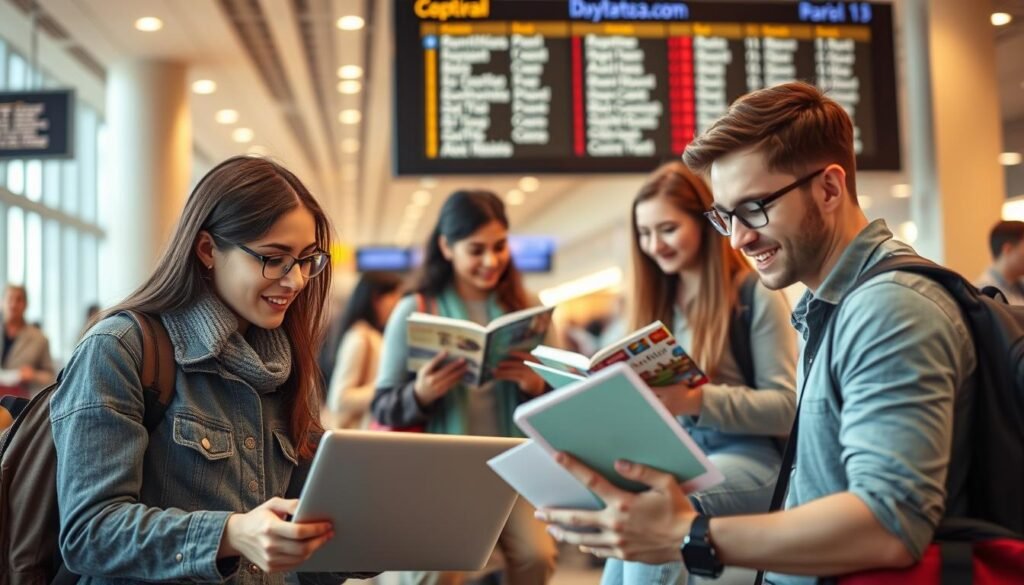
Learning to plan trips opens up a world of adventures. It doesn’t matter if you’re a pro or new to traveling. The goal is to make the most of your time and money. With the right plan, you can have a trip that’s both fun and fits your budget.
Introduction to Travel Planning
When you start planning a trip, setting clear goals is important. This helps you make smart choices about where to go and what to do. Good travel planning means finding a balance between spending less and having a great time.
Key Takeaways
- Understanding your budget is crucial to planning an affordable trip
- Effective travel planning involves setting clear goals and priorities
- Researching destinations and activities is essential to creating a personalized itinerary
- Learning how to plan the perfect trip requires consideration of various factors, including transportation and accommodations
- Mastering the art of travel planning can help you unlock a world of possibilities and create unforgettable experiences
- Travel planning is about finding a balance between affordability and enjoyment
Understanding the Basics of How to Plan the Perfect Trip
Travel planning starts with the basics. You need to know what you want from your trip and what you expect. This helps you choose the right places and activities. Good planning makes your trip fun and successful.
Think about what you want from your trip. Do you want to relax on a beach, explore a city, or go on outdoor adventures? Your answers will guide your planning. This way, you’ll have a trip that’s just right for you.
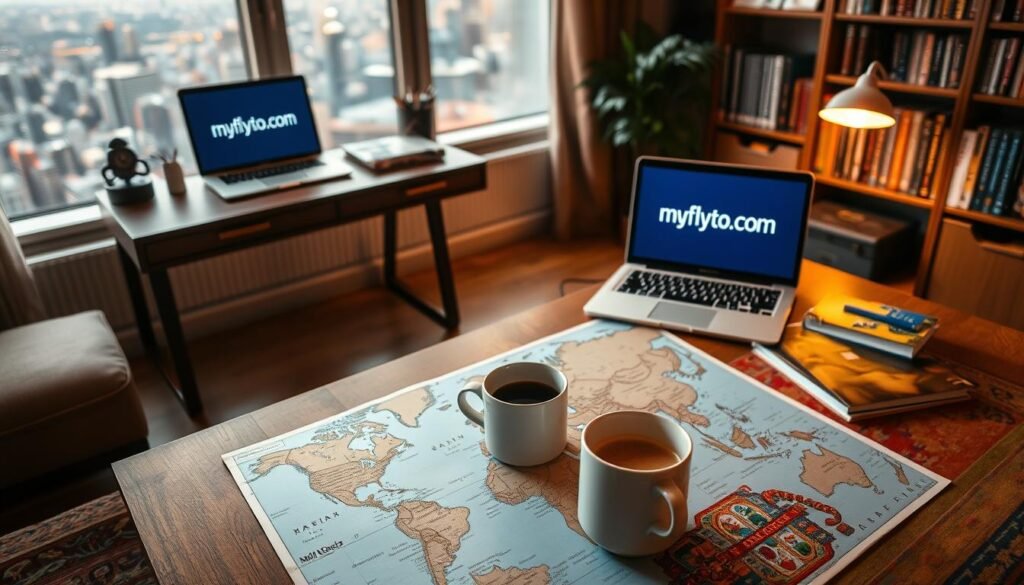
- Define your travel style and preferences
- Set a realistic budget and timeline
- Research destinations and activities
- Create a rough itinerary and make adjustments as needed
By following these steps, you’ll be on your way to a great trip. Stay open to new experiences and don’t be afraid to try new things. With good planning and a positive attitude, your trip will be unforgettable.
Determining Your Travel Budget Framework
Planning a trip means knowing your travel budget well. You need to look at your income, expenses, and savings. This helps you make a budget that fits your needs.
First, think about how much you can spend on your trip. This will help you set your travel budget. You might list your spending priorities, like:
- Transportation costs
- Accommodation expenses
- Food and activity budgets
By focusing on what’s important and budgeting, you can enjoy your trip without spending too much. Good planning is key to a great trip. Knowing your travel budget is a big part of that.

Keep checking and updating your budget as you go. This way, you’ll stay on track and make the most of your travel budget. With smart planning and money management, you can have a fun and memorable trip without overspending.
Choosing Your Ideal Destination Based on Budget
Planning a trip means picking the right places to go. You want a spot that’s within your budget and matches your travel dreams. Look for places that are easy on the wallet and consider the best times to visit and currency rates.
Remember, budget travel doesn’t mean missing out on fun. Many cheap places have great culture, stunning views, and fun activities. For instance, countries like Thailand or Vietnam in Southeast Asia are cheap and full of travel options.
When picking your perfect spot, think about:
- Cost of places to stay and food
- How much it costs to get around
- Fun things to do that won’t break the bank
- How the local currency compares to yours
By looking at these points and doing your homework, you can find a place that’s affordable and memorable. Whether you dream of a calm beach getaway or a thrilling adventure, there are many cheap places to explore.

Mastering the Art of Travel Timing
Planning a trip well means paying attention to travel timing. You want to visit when it’s not too crowded and when prices are lower. This is where planning really helps – finding the best time to go, considering weather, holidays, and busy seasons.
Here are some tips for choosing the best time to travel:
- Weather: Check the average temperature and precipitation levels for your destination during different times of the year.
- Crowds: Avoid visiting popular destinations during peak season if you prefer smaller crowds.
- Prices: Look for off-peak season deals on accommodations and activities to save money.
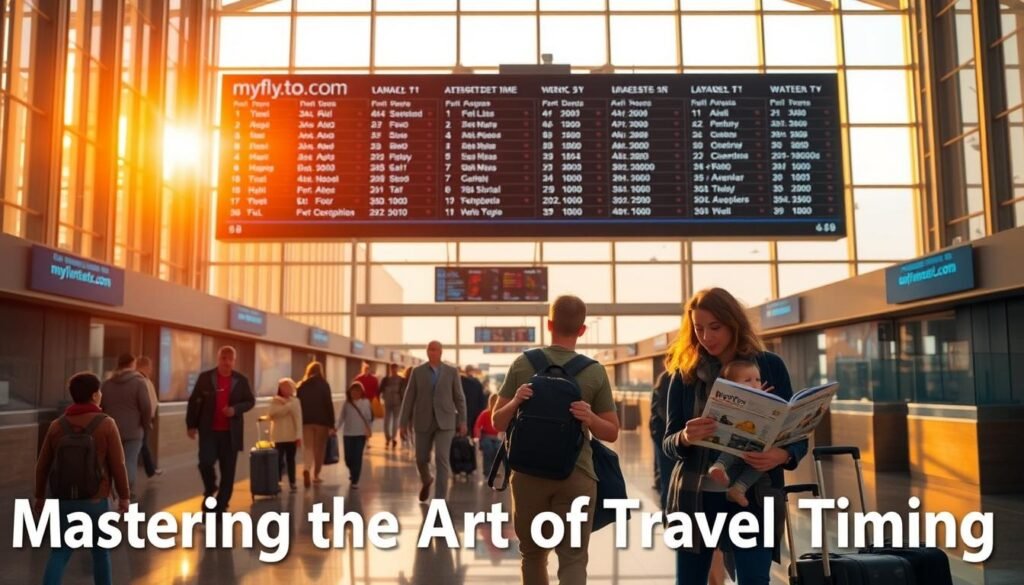
By thinking about these factors and planning well, you can have a great vacation. Being flexible and open to different options is key. With good planning, your trip can be both memorable and affordable.
Creating Your Comprehensive Travel Budget
Planning a trip means having a solid travel budget. You need to think about costs like transportation, where you’ll stay, and what you’ll do each day. A detailed budget helps you save enough for your trip and keeps you from worrying about money. Good planning is key to using your budget wisely.

Breaking Down Expenses
To make a good travel budget, split your costs into groups. This includes:
- Transportation costs, such as flights, trains, and car rentals
- Accommodation expenses, including hotel bookings and hostel stays
- Daily expenses, such as food, activities, and souvenirs
- Emergency fund allocation, in case of unexpected expenses
Calculating Daily Expenses
Figuring out daily costs is important for your budget. Think about what food, activities, and other things cost. A daily budget helps you plan better and stay on track financially.
Finding the Best Travel Deals Online
Planning a trip can be tough, especially when looking for the best travel deals. With many websites and platforms, it’s hard to find the best online booking options. But, with the right strategies, you can save money and enjoy your trip more.
To find top travel deals, start by comparing prices on different sites. Look for online booking platforms with discounts and promotions. Sites like Expedia, Booking.com, and Kayak are great places to start.
Here are some tips to find the best travel deals online:
- Be flexible with your travel dates and destinations
- Use online booking platforms to compare prices and find deals
- Look for package deals that include flights, hotels, and car rentals
- Read reviews and check the ratings of hotels and other travel services
By following these tips, you can find great travel deals online. This will make your trip more affordable and fun. Always book early and watch out for extra fees.
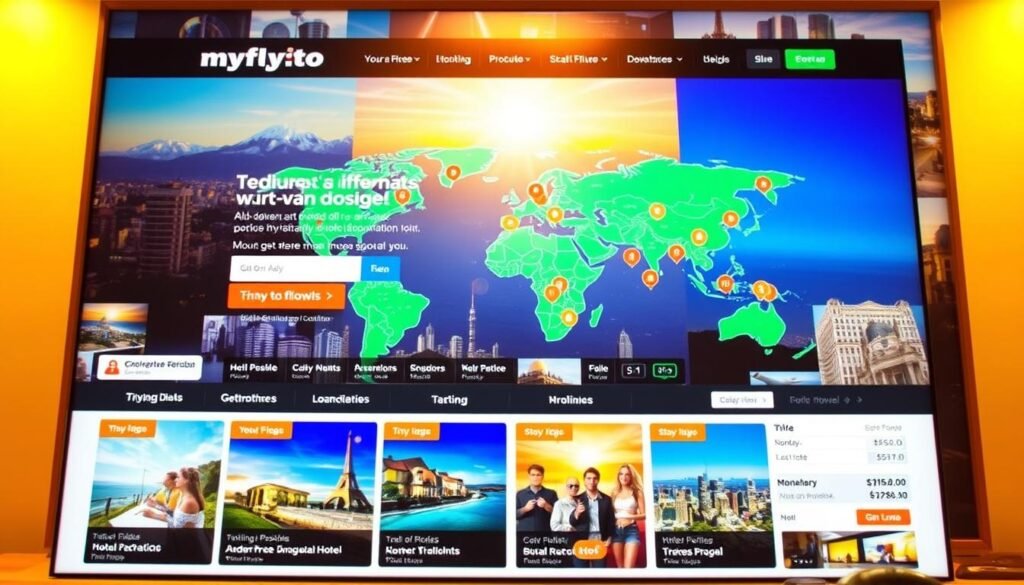
Maximizing Rewards Programs and Travel Points
When planning your trip, think about how to use travel rewards and loyalty programs. These can help you earn points for things like flights, hotels, and car rentals. This way, you can make the most of your journey.
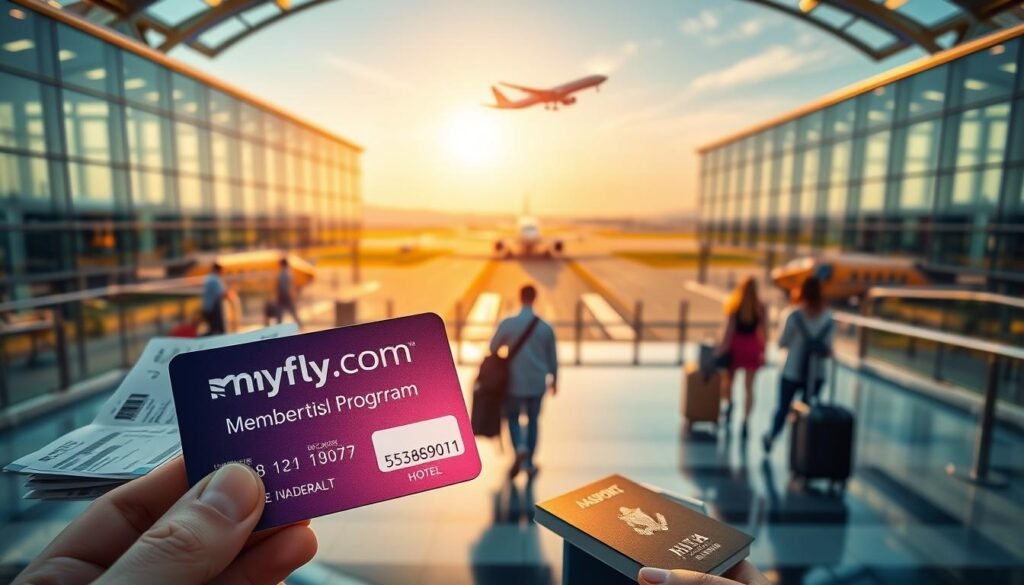
Credit Card Travel Rewards Strategies
Using credit cards with travel rewards can be a smart move. These cards let you earn points or miles for every dollar spent. You can then use these points for travel costs. Cards like Chase Sapphire Preferred and Capital One Venture are great for this.
Airline Miles Optimization
Airline miles are very valuable for travelers. Knowing how to earn and use them can save you money. Airlines like Delta Air Lines and United Airlines have loyalty programs for this.
Hotel Loyalty Program Benefits
Hotel loyalty programs offer great perks for travelers. Joining programs like Marriott Bonvoy or Hilton Honors can earn you points for stays. These points can be used for free nights, upgrades, and more.
Some benefits of hotel loyalty programs include:
- Earning points for every stay
- Redeeming points for free nights and upgrades
- Access to exclusive perks and amenities
Securing Affordable Accommodations
Finding affordable places to stay is key when planning a trip. Look into hotels, hostels, and vacation rentals. Compare prices and what they offer. Think about where they are, how close to public transport, and what others say.
Search for deals and discounts to save more. Websites often have price matching or last-minute discounts. Traveling off-season or staying outside the city center can also be cheaper.
Use sites like Booking.com, Airbnb, and Hostelworld to find deals. These let you filter by price, location, and amenities. This way, you can find a place that fits your budget and needs.
Good travel planning means balancing cost and comfort. By researching and comparing, you can find places that are both affordable and enhance your trip. Whether you want a fancy hotel or a cozy hostel, there’s something for everyone.
Planning Your Transportation Strategy
Traveling can be tough, especially getting to your destination and moving around. Good transportation planning saves time and money. By looking at your options and booking early, you’ll have a better trip.
When planning your travel, think about these important transportation planning points:
- Flight booking tactics: Compare prices, look for deals, and book in advance to get the best rates.
- Local transportation options: Research public transportation, taxi services, and ride-sharing options to find the most convenient and affordable way to get around.
- Multi-city travel planning: If you’re visiting multiple cities, consider the best way to travel between them, such as by train, bus, or car.
By planning your transportation strategy, you can enjoy your travel more. You’ll have a stress-free trip.
Creating Your Daily Itinerary
Starting your travel planning? A daily itinerary is key to a great trip. It helps you plan your day, considering time, budget, and what you like. A good plan keeps you organized and lets you see the best of your destination.
Think about what you want to do and see. What are your top attractions and experiences? How much time and money do you have each day? Answering these helps you make a plan that fits you.
Here are some tips for your daily itinerary:
- Start by researching the top attractions and experiences in your destination
- Plan your daily activities around your interests and priorities
- Consider your budget and time constraints when selecting activities
- Leave some flexibility in your daily itinerary for spontaneity and unexpected experiences
Follow these tips to make the most of your trip. A good daily itinerary ensures you have a fun and memorable journey. It keeps you organized and lets you enjoy the best of your destination.
Balancing Scheduled Activities and Free Time
Finding the right balance between planned activities and free time is key in travel planning. You want to explore your destination without feeling rushed. By focusing on must-see spots and adding affordable activities, your trip can be both relaxing and fun.
When choosing activities, think about what you enjoy. This way, you use your time and money wisely. For example, if history fascinates you, spend more time at museums. If you love the outdoors, find cheap hiking spots or visit local parks.
- Prioritize your must-see attractions and schedule them first.
- Incorporate budget-friendly activities, such as walking tours or visiting local markets.
- Plan flexible time blocks to allow for spontaneity and relaxation.
By following these tips, you can make a travel plan that suits you. This ensures a trip you’ll always remember and enjoy.
Essential Travel Documentation Preparation
As you finalize your travel plans, it’s crucial to prepare the necessary travel documentation. This ensures a smooth and stress-free trip. You’ll need a valid passport, visa, and travel insurance.
To get started, make a list of the required documents. This includes:
- Passport with at least six months’ validity
- Visa (if required for your destination)
- Travel insurance documents
- Flight itinerary and hotel reservation
It’s also a good idea to make digital copies of your travel documentation. Leave a copy with a trusted friend or family member in case of an emergency. By preparing your essential documents, you can enjoy your trip without worry.
Money Management Strategies While Traveling
Managing your money well is key to a stress-free trip. Knowing your finances helps you make smart spending choices. It’s important to have a clear travel budget and a plan for handling your money abroad.
Banking and Currency Exchange Tips
It’s crucial to access your money without high fees while traveling. Use a debit or credit card with no foreign transaction fees. Also, know the exchange rates to avoid losing money on currency changes. You can withdraw local currency at ATMs, but watch out for fees.
Digital Payment Solutions
Digital payment options like mobile wallets and travel apps simplify money management on the go. They offer good exchange rates, low fees, and expense tracking. PayPal, Apple Pay, and Google Pay are some popular choices.
Here are some tips for managing your money while traveling:
- Set a daily budget and track your expenses
- Use a credit or debit card with no foreign transaction fees
- Avoid exchanging money at airports or hotels, as the rates are often unfavorable
- Use digital payment solutions to make transactions easier and more secure
Packing Smart to Save Money
Packing is key in travel planning. It can either make or break your trip. By using some simple packing tips, you can save money and feel less stressed. First, think about the weather and what you’ll do on your trip. Then, pack what you need.
It’s smart to pack clothes that are light and can be worn in different ways. This saves money on luggage fees and helps you avoid overpacking. Also, don’t forget to pack essentials like a portable charger, travel adapter, and a reusable water bottle. This way, you won’t have to buy them when you arrive.
Another key part of travel planning is to check your airline’s luggage rules and fees. Knowing these can help you avoid extra costs. Some airlines let you check your luggage for free on certain flights or for certain classes of travel. So, it’s a good idea to ask them before you go.
By following these packing tips and thinking about your travel planning needs, you can have a great trip without spending too much. Always pack smart, and you’ll be ready for a successful and fun journey.
Travel Insurance and Safety Considerations
As you plan your trip, think about safety and get the right travel insurance. This insurance covers unexpected medical or travel costs. It helps you relax while traveling.
When picking travel insurance, look at these things:
- Policy coverage and limits
- Premium costs and how to pay
- Provider reputation and what others say
Good travel insurance keeps you safe and secure. Know what your policy covers and plan for emergencies. This way, your trip will be smooth and fun.
Always put your safety first when traveling. If you have questions about your policy, contact your insurance provider. With the right travel insurance and planning, enjoy your trip and make great memories.
Conclusion: Bringing Your Travel Plans to Life
Planning the perfect trip on any budget is all about strategy. Start by setting clear travel goals and a realistic budget. Use the right tools and resources to make your adventures affordable and unforgettable.
Success in travel planning comes from paying attention to details and being creative. Look for the best deals on flights and places to stay. Use rewards programs and pack smart to make your trip even better.
Now you have the knowledge to make your travel dreams come true. Get excited for the journey, be open to changes, and enjoy every experience. Happy travels!
FAQ
What are the key steps to planning the perfect trip on any budget?
Planning a trip on any budget involves several steps. First, understand the basics of travel planning. Then, decide on your budget and choose a destination that fits it.
Next, learn how to find the best travel deals online. Use rewards programs and travel points to save money. Look for affordable accommodations and plan your transportation wisely.
Make a daily itinerary that balances activities and free time. Lastly, prepare all the necessary travel documents.
How do I define my travel goals and preferences?
To define your travel goals, think about the type of trip you want. Consider the trip’s duration, the number of people, and your interests. This helps create a travel plan that suits your preferences and budget.
What are some strategies for setting realistic travel budget expectations?
To set a realistic budget, research the costs of your destination. Look at transportation, accommodations, meals, and activities. Also, plan for unexpected expenses and have an emergency fund.
This way, you can make a budget that matches your financial situation.
How can I find the most cost-effective destinations for my trip?
Look for destinations with a lower cost of living and favorable exchange rates. Consider traveling during the shoulder or off-peak seasons. Less popular places often have cheaper options for accommodations and activities.
What are the benefits of traveling during the off-peak season?
Off-peak travel offers many benefits. Prices for accommodations and flights are lower, and attractions are less crowded. You also get a more authentic cultural experience.
Plus, you might find better deals and discounts because of more travel options.
How can I maximize the use of rewards programs and travel points?
Use travel-focused credit cards for sign-up bonuses and rewards. Also, join airline and hotel loyalty programs to earn points or miles. These can be used for future travel expenses.
What are some tips for finding affordable accommodations?
Look for alternatives to hotels like Airbnb, hostels, or vacation rentals. Check the location to ensure it’s safe and convenient. Compare prices on different platforms to find the best deal.
How can I create an effective daily itinerary for my trip?
Prioritize attractions and activities that fit your interests and goals. Make time for exploration and rest. Be flexible to adapt to changes or new opportunities.
What are the essential travel documents I need to prepare?
You’ll need a valid passport, visas or permits, travel insurance, and personal identification. Ensure all documents are up-to-date and easily accessible during your trip.
How can I effectively manage my money while traveling?
Research the best banking and currency exchange options for your destination. Use digital payments and track your spending. This helps avoid unnecessary fees and keeps you within budget.




